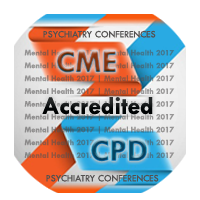
Frances A. Maratos
University of Derby, UK
Title: Evaluation of a compassionate mind training intervention with teachers to improve well-being
Biography
Biography: Frances A. Maratos
Abstract
There is growing evidence that focusing on the cultivation of compassion-based emotions has important effects on mental states and well-being, with research demonstrating compassion-focused therapy and compassionate mind training (CMT) is effective in clinical and non-clinical populations respectively. Very recently, CMT initiatives have begun to be embraced within the UK educational system. Yet no rigorous evaluation of these interventions within a school setting has been progressed nor is there a standardized format in which the intervention is delivered. Therefore, the purpose of the present work was to assess the feasibility of conducting CMT interventions in school settings as well as evaluate the potential effi cacy of such interventions. To this end, we provided all staff of a school specializing in the education of adolescents with social, emotional and behavioral difficulties, with a six session CMT intervention. The intervention included both educational aspects (e.g., emotional processing systems of the human brain and how/when these can be problematic) and specific exercises and practices (e.g., breathing exercises and imagery) to activate the parasympathetic nervous system and up-regulate positive soothing emotions. In evaluation, we adopted a mixed-methods approach. We took measures of well-being, including burn-out, anxiety, stress, depression, self-criticism and occupational self-compassion, pre and post the intervention. Additionally, to gain in-depth feedback concerning the actual CMT initiative we conducted a post intervention focus-group discussion with six staff members. In this talk, I will outline why compassion in school settings is potentially important, as well as overview the specifi c initiative staff undertook in the current work. I will further present the preliminary quantitative and qualitative results of the study, sharing our plans for the next phase of the research and inviting discussion.

